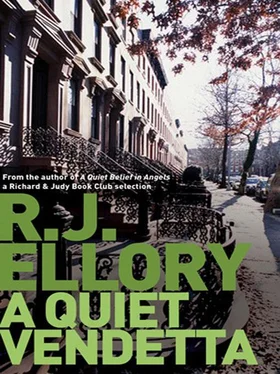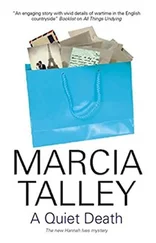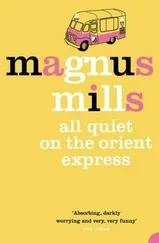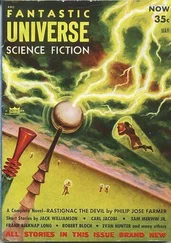It was soon after the murder of Marilyn Monroe, August of 1962. Found dead in her Hollywood bungalow after taking an overdose of Nembutal, Marilyn Monroe was a casualty of war, it seemed. Jack Kennedy’s sexual preferences were not unknown within the Mafia community, for it was Jack Kennedy who’d had an affair with Judith Exner, a girl who had also slept with Sam Giancana, the most influential Chicago mob boss. Exner had been introduced to Kennedy and Giancana by Frank Sinatra, who had entertained the likes of Albert Anastasia, Joseph Bonanno, Frank Costello and Santo Trafficante on Christmas Eve 1946 during a break in the infamous Havana Conference, a conference which had resulted in the contract to kill Bugsy Siegel for the theft of several million dollars from the Flamingo operation in Las Vegas. Besides Judith Exner, it was known that Kennedy had had an affair with Mary Pinchot Meyer, a fact recorded in the memoirs of White House assistant Barbara Gamarekian. The Meyer girl wound up dead only months after Kennedy himself, and it certainly wasn’t from natural causes. Another girl, only eighteen when she went to the White House to interview Jackie Kennedy for a school newspaper, was Marion Fahnestock, known at the time as Mimi Beardsley. After Kennedy met her she was rapidly assigned a post as a White House intern, and from then until days before Kennedy’s assassination she continued an affair with the most powerful man in the world. Marilyn was a different story. Interns, secretaries, legal aides and internal White House staff – these people could be hushed up and paid off. But Marilyn Monroe? Marilyn had to die, and die she did. On 5 August 1962, a little more than a year before Kennedy got his own cranium ventilated in Dealey Plaza, Marilyn was obliged to take a few more Nembutal than she really needed to get herself off to sleep. Don Ceriano knew the details. I asked him one time, and he said, ‘You know enough to know that she is dead.’ He said nothing beyond that, and I didn’t ask again.
It was in the latter part of that month that I was asked to visit a man called Feraud in New Orleans. I had been away the better part of four years, and in my expression Don Ceriano saw that I did not wish to go.
He asked me why.
‘I have my own reasons,’ I replied.
‘Reasons enough to dissuade you from doing something I need you to do?’
‘There would never be enough reasons to dissuade me, but I can ask you only once if there is someone else who can be sent.’
Don Ceriano leaned forward. He rested his elbows on his knees and steepled his hands together. ‘This man, this Antoine Feraud, is a very powerful man. He has much influence and importance in New Orleans. New Orleans is like Havana of old, it is a gambling city, a city filled with prostitution and drugs and great potential. We need to work out a co-operative agreement with these people, and as a gesture of goodwill I wish you to go to see this man and do something for him, you understand?’
I nodded. ‘I have asked, and you have answered.’
‘You are a good man, Ernesto, a true friend. I would not ask you if there was someone else I could trust as much, but there is not. I am not prepared to risk the possibility of losing the business that will come our way because of this man by sending someone who may make a mistake.’
‘With your blessing I will go and do this thing,’ I said.
Ceriano rose to his feet. He placed the flat of his hand on my head. ‘If only my own sons were of your caliber and ability,’ he whispered, and then he leaned and kissed my cheek.
I rose. He gripped my shoulders. ‘I will be with you,’ he said quietly, and I believed he would be – if in spirit alone – for he had become more a father to me than the Havana Hurricane had ever been.
Louisiana came back to me like a cancer, once benign, now malignant.
Louisiana came back to me like a nightmare I believed I had forgotten.
Times were that the law would walk these tracks: the Revenue men driving their unmarked cars along these winding roads, out here amongst the everglades, the bayous, the intersecting canals that cut some fine-drawn line between the swamps and stagnant tributaries. Times were that they would bring their city prayers down here and fight for what they believed was equitable and just. They would find distilleries, dynamite them, arrest the families’ men and bring them to trial before the peripatetic circuit court judges who traveled these quarters dispensing law and judicial expertise. The families would retaliate the only way they knew how, returning justice in true eye-to-eye manner, killing and maiming and despatching wounded Revenue men back to the city. For many years this process continued, until statisticians with sharp pencils and white collars proved that these search-and-destroy missions were fruitless. They lost as many men as they arrested. The belief in the law changed, civilization seemed to grow around the family territories, and people were no longer interested in what was done beyond their limits. The police did not so much concede defeat as adopt a live-and-let-live attitude. This itself wore these agreements into the earth, a path cut through by the passage of many feet rather than any conscious decision, and the territory stayed the territory, the law that applied to these people quite the opposite to any law known and followed elsewhere.
I entered this country with the degree of respect ordinarily reserved for the dead, but I also understood that the dead could perceive nothing, and thus deserved no respect. Don Ceriano had spoken to me of Antoine Feraud. Daddy Always, he called him, for this was the name he was given in these parts. To take the law into your own hands down here was to play into the hands of Feraud, and his authority was close to autocratic. Those who followed him, Don Ceriano told me, followed him reverentially. Those who did not walked a fine line between his compassion and his own form of brutal and indifferent justice.
A bridge spanned a small tributary close to the limits of Feraud’s land. His property ran a good mile from the large colonial house that had passed down the family line for many generations, and where the swamps began his necessity to guard his boundaries ceased. The bridge was stationed at all times by at least two of Feraud’s men, tall, invariably ugly, and they carried carbines or pump actions with no threat of unlawful possession. The police knew, and they understood a man’s desire to protect his land and his family, and concessions had been granted.
It was 1962, but here time had stopped somewhere in the 1930s.
One afternoon, with the threat of imminent rain darkening the sky as if evening had already begun, I approached the bridge with a deepening sense of desperation. I did not want to be here, but I had no choice. To return to Don Ceriano with this thing undone would be to return with betrayal. There was work to be done, and as an act of good faith between Feraud and Ceriano I had been sent to complete the work. This I would do, but this thing scared me. This was my own homeland, a place where I had witnessed the death of my mother, and though my father had paid the price for his actions, though I had exacted my own justice for what he had done, I still harbored a memory of this place in the darkest recess of my heart.
At the bridge I was greeted by Feraud’s men. They spoke in broken New Orleans French, and they directed me up towards the house. I started through the banks of swollen, fetid undergrowth that infested this land like spreading sores. Perhaps the water was bad, stagnant and oily; perhaps the density of foliage denied sufficient light; perhaps the earth was deficient in nitrogen and minerals, for the trees down here were twisted and gnarled, and the branches that leered over the footworn pathways were like beckoning arthritic fingers, summoning harsh words and harsher actions. When darkness drifted through these groves and banks, there could be no man who didn’t feel some sense of unease, the shadows pressing against the face, the hands, the humidity exaggerated, the vision blurred and limited to ten or fifteen feet. Years ago I had walked near this territory. Years ago I had driven a dead man out here and crushed his head beneath the wheel of a car. I could recall that journey, fine lines of condensation chasing tracks down the car windows, the smell of the everglades, the intensity of it all…
Читать дальше







![Quiet Billie - Don't mistake the enemy [СИ]](/books/421973/quiet-billie-don-t-mistake-the-enemy-si-thumb.webp)




